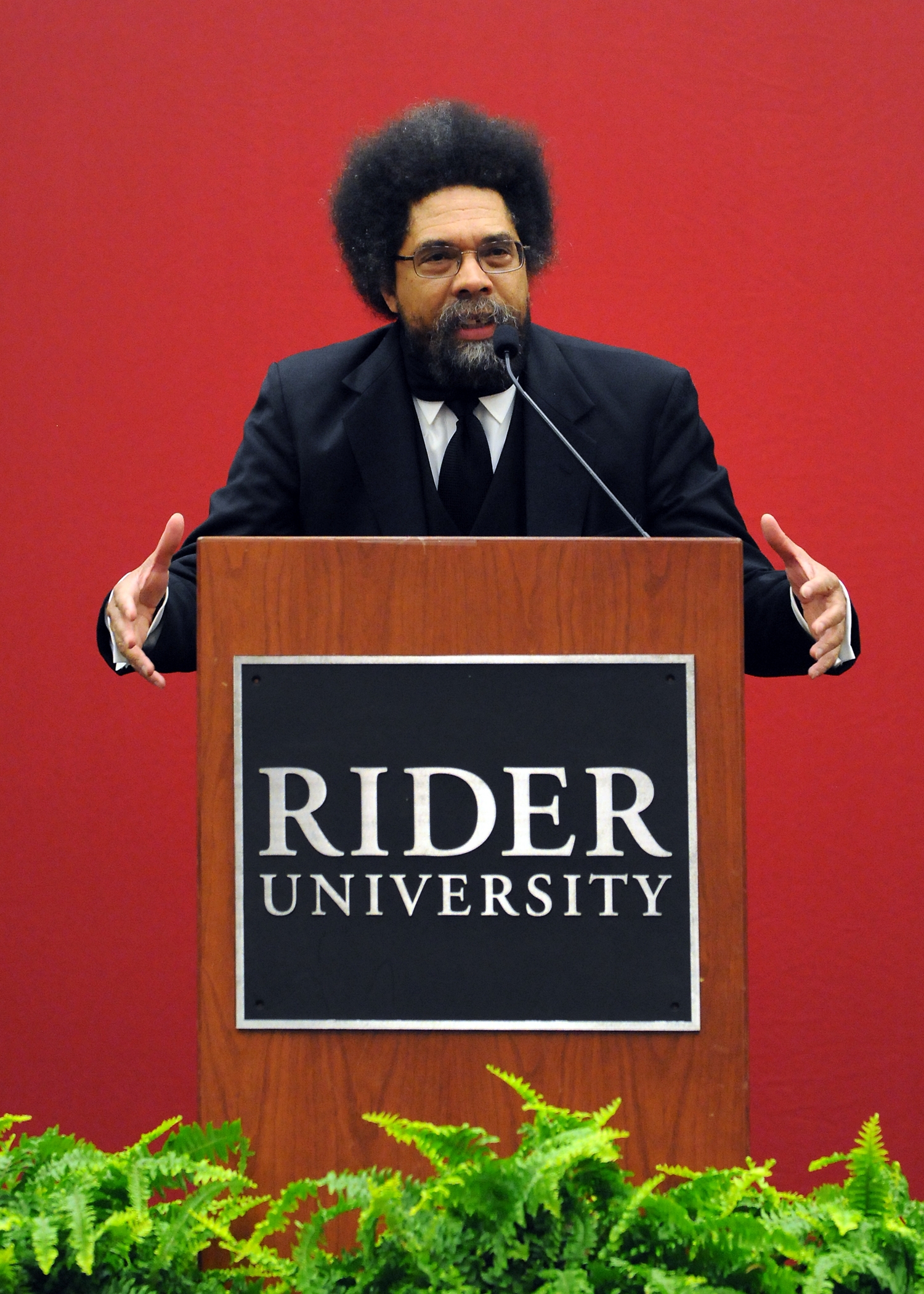Monday, Mar 21, 2011
World-renowned scholar, author and civil-rights activist Cornel West inspired a Black History Month audience on February 28 with a message of unity, self-determination, responsibility, purpose, creativity and faith – the principles of Kwanzaa.
by Sean Ramsden
The surest path to truly being human, according to Dr. Cornel West, rests in upholding the principles of Kwanzaa. “However, it’s not easy,” cautioned West, Rider’s Black History Month keynote speaker. “It requires a shift from living in the superficial to living in the substantial.”
West, a world-renowned scholar, civil-rights activist and professor of African-American history at Princeton University, spoke to a capacity audience inside the Bart Luedeke Center Cavalla Room on February 28 to conclude Rider’s Black History Month celebration, themed Celebrating the Seven Principles of Kwanzaa. His appearance was sponsored by the Black Student Union and the Office of Multicultural Affairs.
“It takes courage,” said West, invoking Irish poet William Butler Yeats. “It takes more courage to examine the corners of your soul than to fight on the battlefield.”
The suffering that has underlined the history of black people in America also provides a rich context of truth to that narrative, according to West. He slowly and dramatically listed African-American artists and leaders such as Louis Armstrong, Malcolm X, Curtis Mayfield, Toni Morrison, Thelonious Monk and John Coltrane as examples of those who have spoken of the struggle with a genuineness impossible to fabricate.
“It’s hard to find a group of persons like that who exemplifies what it means to be human,” he said. “So, what kind of human are you going to be from the womb to the tomb? What kind of legacy are you going to leave? What kind of story are you going to situate yourself within?”
West spoke of self-determination – the Kwanzaan principle of Kujichagulia – as being absolutely vital to humanity, and urged students of color to buoy their community by “lifting every voice.” However, he also warned of another dialogue that simultaneously threatens human progress.
“Don’t confuse a voice with echoes. There are too many folks into imitation, not creation,” he said. “I see too many copies – folks too well-adjusted to mediocrity. In the 1960s, many struggled so that other folks could be successful, so don’t become well-adapted to indifference. Indifference to evil is more evil that evil itself.”
Black history, says West, is concerned with trying to tell the truth, but that is “tough in a world where everyone is up for sale.” He cited former heavyweight boxing champion Muhammad Ali as an example of putting principle ahead of money, when he willingly relinquished his title for three years during his athletic prime over his steadfast refusal to serve in the Vietnam War.
“Men like Frederick Douglass would never, ever sell their souls for a mess of pottage,” proclaimed West, who said the quest for money at any cost devalues the black community, placing it in a position where it cannot succeed. Standing up against destructive forces will always be a source of liberation, he said. “Anytime ordinary people straighten their backs, they’re going someplace because no one can ride your back unless it’s bent,” he added.
West encouraged the young audience to individually find their vocation, which is not to be confused with their profession. Service to others is way for them to maintain faith, their authentic belief that their struggle is the right one.
“Your destiny is inextricably linked to the destinies of others less off than you,” he said.

